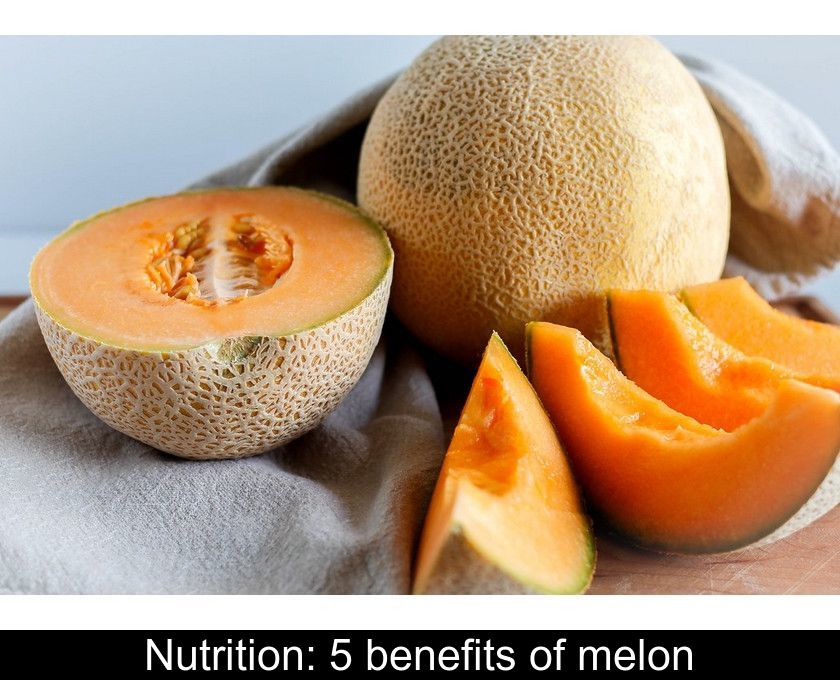Nutrition: 5 Benefits Of Melon
Served chilled as an appetizer or dessert, melons are one of the star fruits of summer. But did you know that its juicy, sweet flesh is packed with healthful nutrients? We have listed 5 benefits of melon for you.
1- It is rich in water
A fruit vegetable from the Cucurbitaceae family, the melon ripens exactly at the time of year when we need it most.
In fact, melons are among the most water-rich fruits. A quarter of this fruit provides about 14 centiliters of water, the equivalent of a small glass.
It is interesting to consume it during periods of high heat and heat wave when it is difficult to drink plain water.
This fruit is even more beneficial during the summer months as it also contains minerals such as potassium and calcium that decrease water retention in the tissues and edema.
2- It is low in calories
Contrary to what its taste might suggest, melon is not one of the sweetest fruits.
Its sugar content is around 7% while the average fruit is 12%. One slice brings only 50 calories, making it a reasonable dessert if you're watching your waistline during the summer.
As an appetizer, in order not to increase the number of calories, of course, you should serve it without port or Parma ham! Instead, you can incorporate it into a colorful Mixed salad with cucumber and feta cheese.
To note: the only people who should moderate the consumption of this fruit are diabetics as well as people with too high triglyceride levels in the blood. In this case, you should limit yourself to one portion and choose to eat it either as an appetizer or as a dessert.
3- It protects the skin from the sun
Another of the benefits of melon in summer is its ability to protect the skin from the sun thanks to its richness in beta-carotene. This orange pigment found in other seasonal fruits like apricots is an antioxidant with protective effects.
Now, melons with orange flesh are among the plants richest in beta-carotene with carrots, mango and apricots.
This fruit therefore helps to prevent cellular aging and protect the epidermis from the harmful effects of ultraviolet rays. But of course, eating melon doesn't exempt you from applying sunscreen when you go out in the sun!
4- It contributes to the health of your eyes
In addition to beta-carotene, melons contain other pigments called lutein and zeaxanthin. When you eat this fruit, these pigments concentrate in the retina: thus protecting your eyes from ultraviolet and blue light from screens!
Studies have shown that these specific pigments help to prevent eye diseases like AMD (age-related macular degeneration) and cataracts.
But again, this does not exempt you from wearing Sunglasses to protect your eyes at the beach and during outdoor activities.
5- It reduces the risk of hypertension
The last of the 5 benefits of melon is its ability to lower blood pressure thanks to its interesting potassium content (237 mg per 100 g).
You only need to eat half a small melon to cover 20% of the recommended daily allowance of potassium.
Now, many studies have shown that a diet rich in potassium helps reduce the risk of hypertension by rebalancing the excess sodium in our diet.







